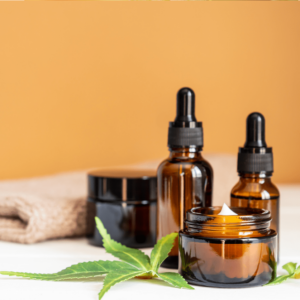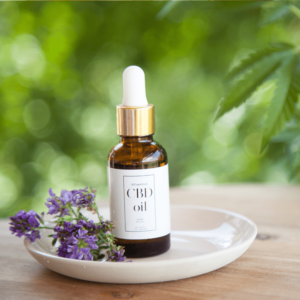More than 40 million Americans cope with anxiety, with symptoms ranging from mild to completely debilitating. Anxiety disorders are the most prevalent mental health conditions worldwide. Treatments include psychotherapy, lifestyle changes and a long list of medications—some with some pretty unpleasant side effects. Recent research suggests that CBD (cannabidiol) may be able to help reduce anxiety as effectively as some prescription drugs, but without the side effects. Here’s what you need to know about how CBD works to relieve anxiety and related symptoms, and how to take it for the best results.
Article higlights:
- Anxiety is the most common mental health condition in the world.
- CBD oil may help relieve many symptoms of anxiety.
- CBD works with receptors in areas of the brain associated with mood and arousal.
- CBD oil is a popular way of taking CBD.
- CBD oil can be taken in a variety of forms.
What is CBD Oil?
CBD oil is a broad term that covers several kinds of products. Generally, though, CBD oil is made by adding a CBD extract to a carrier oil, such as coconut, hempseed or flaxseed. CBD oil that’s derived from hemp typically contains no THC, or so little THC that it falls under the U.S. government’s threshold of 0.3 percent THC for legal sales. But some kinds of CBD oil extracted from the cannabis plant may be CBD-dominant with a certain amount of THC, so it’s wise to read labels carefully.
How Can CBD Oil Relieve Anxiety?
CBD is one of over 100 known compounds in the cannabis sativa plant. It’s also one of the most plentiful, accounting for about 40 percent of extracted cannabinoids, second only to THC (delta-9 tetrahydrocannabinol). These and other cannabinoids activate receptors in the body’s many subsystems, including the endocannabinoid system—a network of cells that responds both to natural cannabinoids and to the compounds in the cannabis plant.
Researchers are still working to understand exactly how CBD achieves its notable healing effects, including anxiety relief. But recent research reveals that CBD appears to affect several different brain pathways associated with arousal, mood and fear. CBD interacts with serotonin receptors in the brain (low serotonin levels may be a principal cause of anxiety and depression. CBD can serve to block the reabsorption of serotonin in the brain (like prescribed selective serotonin reuptake inhibitors). This makes serotonin more available in the synaptic space (the space between neurons in the brain), increasing serotonin signaling and helping to alleviate anxiety and other mood disorders.
CBD can also dampen the negative effects of THC, which can include extreme anxiety. But CBD operates on pathways not shared by THC, too. These pathways help to mute the effects of “arousal” chemicals like cortisol and adrenaline in the central nervous system. That can help to relieve symptoms like a rapid heartbeat, nausea and dizziness. CBD can also help with insomnia, which often accompanies anxiety.
How to Use CBD Oil for Anxiety
There are a variety of consumption methods to choose from when taking CBD oil for anxiety. If you want immediate relief, vaporizers and sublingual options are good choices. These are rapid-onset options that start working within minutes and can stay with you for a few hours. If you want something that stays in your system longer, consider CBD edibles, or add some oil to a favorite food or beverage. The effect may last longer but it also takes longer to kick in, perhaps an hour or two.
CBD oil can also be used as a base for topical products that can help to promote feelings of relaxation and calm. Creams, lotions and salves that contain CBD don’t enter the bloodstream, but they can relieve muscle tension and soothe the skin. Many CBD topicals also contain other stress-reducing ingredients like lavender, rosemary oil and magnesium.
If you’re suffering from anxiety, you’re not alone. But research reveals that CBD oil may provide safe, natural relief from the symptoms of anxiety—and there’s a CBD product to suit just about everyone’s needs.





